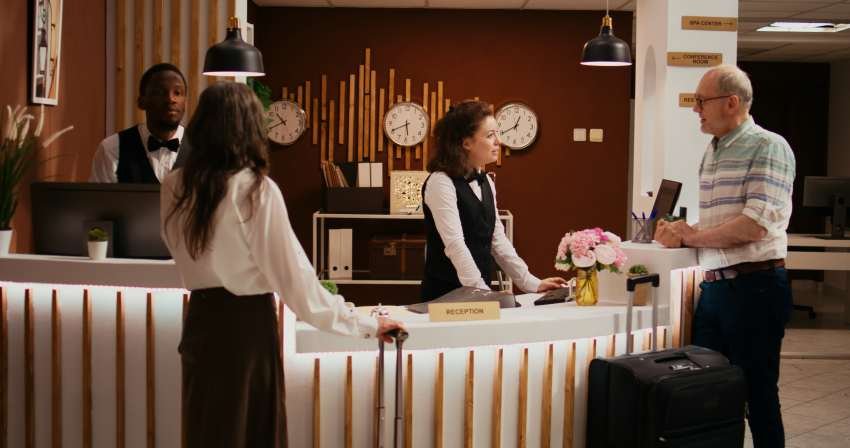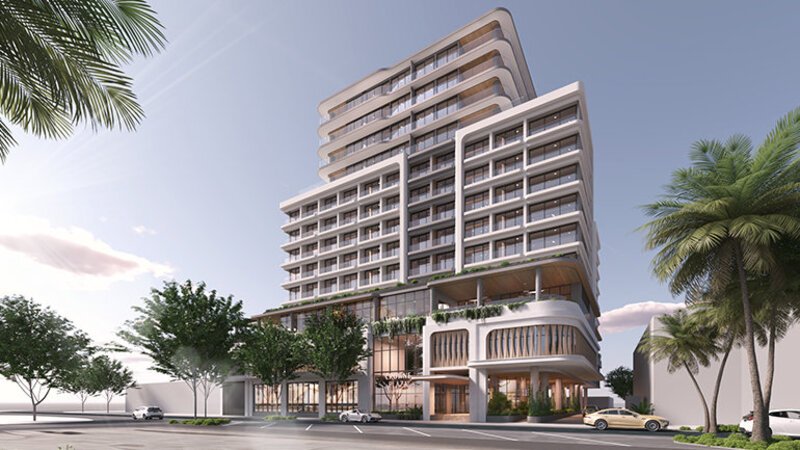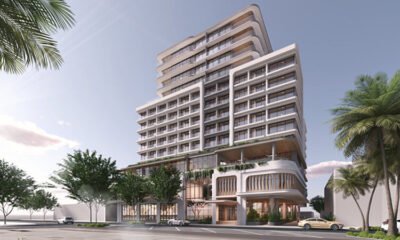Hotels & Accommodations
Is Berkeley’s Hotel Industry Overcoming Rising Costs and Soft Demand with Resilience and Steady Tourism Recovery Compared to San Francisco and Oakland? Here’s More New Information For You

Published on
August 8, 2025 |
By: TTW News Desk
Berkeley, a city known for its academic legacy and vibrant cultural scene, has not been immune to the struggles that have beset the hospitality industry in the Bay Area. Since the pandemic, the local hotel market has faced a range of challenges, from a decline in demand to rising operational costs. However, while several hotels have closed their doors or filed for bankruptcy, there are signs of resilience in Berkeley’s hotel industry. The city’s steady recovery, aided by its unique position as a college town, provides an interesting perspective on how some areas are faring better than others in the region.
Soft Demand and Rising Costs Impact Berkeley’s Hotel Market
The aftermath of the pandemic has left a significant mark on the global tourism industry, and Berkeley’s hospitality sector has not escaped its effects. Like many cities, Berkeley has seen softer demand for hotel rooms, as travelers continue to navigate concerns over safety, convenience, and cost. The double impact of reduced demand for both business and leisure travel, coupled with rising costs for essentials such as labor and supplies, has made it increasingly difficult for local hotels to remain profitable.
While Berkeley’s hotel tax revenues have dropped, they have not suffered the same dramatic losses as those seen in other parts of the Bay Area. Still, some of the city’s largest hotels have faced serious financial challenges. For example, the DoubleTree by Hilton, the largest hotel in Berkeley, located at the waterfront, faced financial turmoil after ceasing rent payments on its city-owned property earlier this year. The property was reportedly at risk of defaulting on a $48.3 million loan, underlining the pressures many hotels face as they attempt to recover from the pandemic’s economic toll.
The University Inn and Suites in West Berkeley, another local hotel, declared bankruptcy in June, highlighting the difficulties small and mid-sized hotels are experiencing. This follows a trend seen across the country, where hotels that rely on a combination of transient business, convention traffic, and tourism are feeling the strain. A more significant concern for Berkeley was revealed in May when it was disclosed that several large hotels had stopped paying their nightly room taxes. This issue has contributed to a shortfall in the city’s hotel tax revenues, which fell below pre-pandemic levels.
Despite these setbacks, Berkeley’s hospitality sector has shown surprising resilience. While hotel occupancy rates in the first half of 2025 were consistently lower than in 2019, the city’s hotel revenues have remained relatively stable. This has been attributed to the consistent flow of visitors, drawn in part by Berkeley’s prominent position as a college town and its proximity to major Bay Area attractions.
Shifting Hospitality Landscape in Berkeley
Berkeley’s unique identity as a college town has played a crucial role in its ability to weather the storm. While larger cities like San Francisco and Oakland have been plagued by significant declines in convention business and corporate travel, Berkeley has maintained a steady stream of visitors related to the University of California, Berkeley. This steady influx of students, academics, families visiting students, and faculty has provided a buffer against the broader declines seen in the hotel industry. The consistent demand from these visitors has helped local hotels maintain a relatively stable revenue base, compared to other parts of the Bay Area.
Moreover, Berkeley has also seen some growth in its hotel inventory. The addition of the Residence Inn in downtown Berkeley in 2021 has helped offset the losses from the closure of some older hotels. The Residence Inn, with its extended-stay accommodations, has contributed to an increase in the number of available hotel rooms in the city. As a result, Berkeley’s total hotel room inventory has grown slightly, from 1,471 before the pandemic to 1,514 rooms today. This growth in room availability has helped ensure that the city is not entirely dependent on any single sector of the hospitality industry.
However, not all hotels in Berkeley have remained open. The Bancroft Hotel, a historic building located across from the UC Berkeley campus, closed its doors after its owner sought city approval to convert the property into student housing. This trend of repurposing hotels for non-tourism uses reflects broader shifts in the region’s hospitality market, as hotels increasingly compete with short-term rental platforms like Airbnb and other alternative accommodations.
The Impact of Rising Costs on Berkeley’s Hotel Industry
As with other parts of the Bay Area, Berkeley’s hotels are grappling with rising costs that have put pressure on their profitability. These costs have been exacerbated by inflation, particularly in labor, insurance, and supply chain disruptions. The increased cost of doing business has made it more difficult for hotels to remain competitive, especially for mid-range and lower-tier properties. For example, the rise in labor costs has made it harder for hotels to maintain their operations without increasing prices, which could deter budget-conscious travelers.
The increase in costs also makes it difficult for local hotels to remain competitive with alternative accommodations such as Airbnb, which often offer lower prices and more flexible options for travelers. This shift has made it harder for hotels to maintain occupancy rates, and many have had to adjust their business models to meet the changing needs of travelers. Some hotels, like the Residence Inn, have adapted by targeting longer-term stays and offering special pricing for student accommodations, reflecting a broader trend in the market toward more flexible, affordable travel options.
Tourism Recovery in Berkeley: A Steady, Long-Term Process
While other parts of the Bay Area have seen slower recoveries, particularly in the San Francisco and Oakland markets, Berkeley’s tourism industry has shown a steady rebound. The city has benefitted from its unique position as a hub for academia and culture, as well as its status as a more affordable alternative to some of the region’s more expensive tourist destinations. Berkeley’s tourism office, Visit Berkeley, has focused on leveraging these advantages to position the city as a desirable destination for visitors from across the globe.
One of the key factors driving Berkeley’s recovery has been its growing reputation as a welcoming city for a diverse range of travelers. Visit Berkeley’s marketing campaigns have focused on attracting visitors from Mexico and Canada, as well as LGBTQ+ travelers seeking a progressive, inclusive destination. This shift in focus reflects the city’s progressive values and its emphasis on creating an environment where all visitors feel welcome.
Additionally, Berkeley has capitalized on its cultural assets, including its proximity to the UC Berkeley campus, the Lawrence Berkeley National Laboratory, and a host of outdoor activities in the surrounding areas. These attractions, combined with the city’s vibrant dining scene and eclectic neighborhoods, make it an appealing destination for tourists seeking both culture and relaxation.
Berkeley’s Hotel Industry: A Model of Resilience Amid Broader Struggles
Despite the challenges posed by the pandemic, rising costs, and soft demand, Berkeley’s hotel industry has demonstrated resilience. The city has not experienced the steep declines in hotel revenues and occupancy rates seen in nearby cities like San Francisco and Oakland. While there are still obstacles to overcome, the steady flow of visitors and the diversification of the city’s hotel offerings suggest that Berkeley is on a path to sustained recovery.
The situation in Berkeley’s hospitality market offers valuable lessons for other cities grappling with similar challenges. By leveraging its unique position as a college town, focusing on sustainable tourism, and adapting to the changing needs of travelers, Berkeley has been able to navigate the post-pandemic landscape more effectively than many other regions in the Bay Area.
As the tourism sector continues to evolve, Berkeley’s ability to adapt to new trends, from student accommodations to alternative lodging options, will play a key role in ensuring the long-term health of its hotel industry. By focusing on inclusivity, sustainability, and cultural tourism, Berkeley is positioning itself as a key player in the future of Bay Area tourism.
Conclusion
Berkeley’s hotel industry, like much of the Bay Area, faces ongoing challenges as it recovers from the impacts of the pandemic. Rising costs, soft demand, and increased competition from alternative accommodations have put pressure on the local hospitality sector. However, the city’s unique position as a college town, combined with its focus on sustainable and inclusive tourism, has allowed it to weather the storm more effectively than other regions. With steady recovery and a focus on attracting diverse visitors, Berkeley’s hotel industry is poised for a bright future.
Hotels & Accommodations
IHG Hotels & Resorts Announces Exciting New Crowne Plaza Maroochydore with 770m² of Versatile Event Spaces, 180 Luxury Rooms and Exceptional Dining Experiences

Published on
August 8, 2025 |
By: TTW News Desk
IHG Hotels & Resorts has unveiled its latest addition to the Crowne Plaza brand, setting the stage for a new era in luxury accommodation and event hosting. The Crowne Plaza Maroochydore, located in the heart of Queensland’s stunning Sunshine Coast, promises an unparalleled experience with 770m² of versatile event spaces, perfect for everything from intimate gatherings to large-scale conferences. With 180 stylish luxury rooms and a variety of exceptional dining experiences, this new hotel is designed to cater to both business and leisure travelers. Whether you’re looking to host a sophisticated event or simply indulge in a relaxing stay, Crowne Plaza Maroochydore is set to become a standout destination.
IHG Hotels & Resorts, in partnership with Felix Capital, has unveiled revised plans for a major new project located on Ocean Street in the vibrant heart of the Sunshine Coast—Crowne Plaza Maroochydore.
The hotel will offer 180 modern guest rooms and over 770 square meters of versatile meeting and event space, including a 600-square-meter ballroom. Additional amenities will include a 30-meter swimming pool, a spa, a wellness center, a gym, a sauna, and secure parking across two basement levels. Guests will also enjoy a range of dining options, such as a 210-seat all-day restaurant, a 160-seat signature dining space, an outdoor poolside bar and lounge, and a lobby bar. These offerings are designed to cater to corporate events, weddings, family vacations, and community gatherings alike.
This development is an updated version of an earlier plan for voco Maroochydore, designed to meet the growing demand for high-quality conference and event facilities in the region.
Matt Tripolone, IHG Hotels & Resorts Managing Director, Australasia & Pacific, said: “We worked closely with Felix Capital to reimagine this opportunity, thinking strategically about the elements that will create the best outcome for the hotel and the Sunshine Coast region. Through discussion and feedback, it became clear that there was real value in delivering a hotel that puts conferences and events at its core as well as delivering an exceptional guest experience.
“We’re proud to support Felix Capital’s vision to deliver an incredible asset that will draw people to the region for business, leisure, and everything in between,” said Matt.
Michael Maroun, Director at Felix Capital, said: “The response to our original vision was overwhelmingly positive, and securing additional land gave us the chance to think bigger. With Crowne Plaza at the heart of this development, we can now create a space that truly meets the needs of the region, particularly in the conferencing and events space. We’re confident this hotel will not only attract events and activations to the Sunshine Coast but also elevate the broader visitor experience and boost the region’s appeal as a year-round destination.
Local and state authorities have projected that by 2032, over 2,400 additional hotel rooms—equivalent to approximately 10 new hotels—will be needed to accommodate the region’s economic growth. This development is crucial for meeting the anticipated demand. Situated along Ocean Street, the expanded precinct will not only support the rise in tourism and business travel but will also create opportunities for continuous events, meetings, exhibitions, and other destination activities that will benefit the local economy.
IHG Hotels & Resorts has introduced the Crowne Plaza Maroochydore, offering 770m² of flexible event spaces and 180 luxurious rooms. This stunning addition to the Sunshine Coast features exceptional dining experiences, catering to both business and leisure guests. The new hotel promises to be the perfect destination for unforgettable events and getaways.
The construction of Crowne Plaza Maroochydore is slated to begin in early 2026, with an anticipated opening in 2028.
This project represents the second partnership between IHG and Felix Capital, following the 2024 agreement for Holiday Inn & Suites Caloundra, which is scheduled to open in 2030.
Hotels & Accommodations
Don’t miss New Zealand’s top hotel event of the year

The countdown is on to the Aotearoa Hotel Industry Conference and Exhibition (AHICE), which returns for its fourth annual event next week.
Taking place at Te Pae Christchurch Convention Centre from 12-13 August, the AHICE Aotearoa program will feature the biggest names in the hotel and accommodation industry – from key owners and investors to senior leaders at major hotel groups including Accor, EVT, IHG Hotels & Resorts, TFE Hotels, Hilton, Panache Hotel Group, Radisson Hotel Group, Sudima Hotels, Wyndham Hotels & Resorts, 1834 Hotels, BWH Hotels, Choice Hotels, Asia-Pac, Marriott International, Millennium Hotels & Resorts, Scenic Hotels, The Ascott Limited, Trilogy Hotels and more.
Key speakers include New Zealand Minister for Tourism and Hospitality and Deputy Leader of the House, the Hon. Louise Upston; Mayor of Christchurch, Phil Mauger; Tourism New Zealand Chief Executive Officer, René De Monchy; and Los Angeles-based musician, Toby Rand.
Executives from leading businesses across the industry will be in attendance including leaders from THSA Hotel Advisors, Asia Pacific Resort Development Organisation (APRDO), IHG Owners Association, Agilysys, JLL, Luxury Escapes, STR, Capstone, Mulpha International, Horwath HTL, SiteMinder, Woods Bagot and many more.
Tuesday’s program will feature Power Sessions – full of insights and perspectives in development, franchising, rising stars, regional growth, interior design and food & beverage – plus keynotes, Q&A and panel discussions.
On Wednesday morning, INN Tech, previously held in Singapore and Adelaide, will feature a keynote presentation by Singapore-based Enzyme Consulting Founder and CEO, Andrew Cameron.
That will be followed by two panel sessions featuring experts from some of the region’s most prestigious tech companies, who will discuss the latest in-room technology and innovations.
The day continues with more panel discussions such as an investors’ outlook, leaders’ expectations, an essential development outlook, Q&As with hoteliers and tourism leaders, plus keynote sessions.
A stellar exhibitor showcase will feature product displays, live demonstrations and sample products from the likes of Admire Commercial and Shade Elements, A.H. Beard, Astro Hospitality, Dormakaba, FutureLog Oceania, House of Forbes, Liverton, Mews Systems Pty Ltd, Montague, Opawa Wines, Panache Hotel Group, Robertson Bathware, Sealy New Zealand, Signature Floors, Sleepyhead Commercial, Smart Parking, Speed Queen, Vingcard – Assa Abloy and Vittoria Food & Beverage.
From Monday through to Wednesday evening, there will be numerous daytime and evening networking events to connect with industry peers.
Find out more at ahiceconference.com/aotearoa
Hotels & Accommodations
Cases booked against 4 hotels

Tirupati: The Food Safety and Legal Metrology department jointly inspected hotels and restaurants and bars in the city on Thursday.
As many as 18 teams of officials of the two departments inspected 36 hotels and collected 35 samples of various food items for examination. While 26 kg of food item that were found unfit for consumption were destroyed.
Joint food controller Poorna Chandra Rao said cases were registered against the management of four hotels and improvement notices were issued to 14 restaurants. Action will be taken as per law after the results of the samples, which were sent for examination, are received, he added.
-

 Brand Stories3 weeks ago
Brand Stories3 weeks agoBloom Hotels: A Modern Vision of Hospitality Redefining Travel
-

 Brand Stories2 weeks ago
Brand Stories2 weeks agoCheQin.ai sets a new standard for hotel booking with its AI capabilities: empowering travellers to bargain, choose the best, and book with clarity.
-

 Destinations & Things To Do3 weeks ago
Destinations & Things To Do3 weeks agoUntouched Destinations: Stunning Hidden Gems You Must Visit
-

 Destinations & Things To Do2 weeks ago
Destinations & Things To Do2 weeks agoThis Hidden Beach in India Glows at Night-But Only in One Secret Season
-

 AI in Travel3 weeks ago
AI in Travel3 weeks agoAI Travel Revolution: Must-Have Guide to the Best Experience
-

 Brand Stories1 month ago
Brand Stories1 month agoVoice AI Startup ElevenLabs Plans to Add Hubs Around the World
-

 Brand Stories4 weeks ago
Brand Stories4 weeks agoHow Elon Musk’s rogue Grok chatbot became a cautionary AI tale
-

 Brand Stories2 weeks ago
Brand Stories2 weeks agoContactless Hospitality: Why Remote Management Technology Is Key to Seamless Guest Experiences
-

 Asia Travel Pulse1 month ago
Asia Travel Pulse1 month agoLooking For Adventure In Asia? Here Are 7 Epic Destinations You Need To Experience At Least Once – Zee News
-

 AI in Travel1 month ago
AI in Travel1 month ago‘Will AI take my job?’ A trip to a Beijing fortune-telling bar to see what lies ahead | China













You must be logged in to post a comment Login